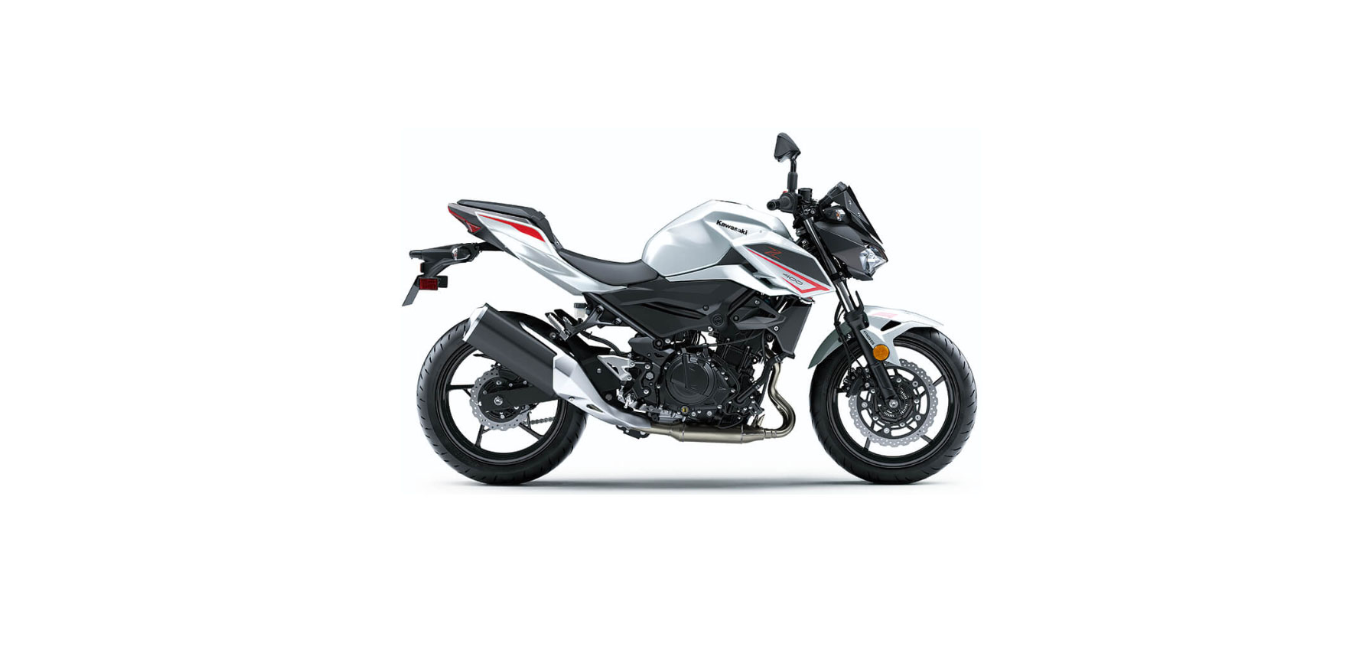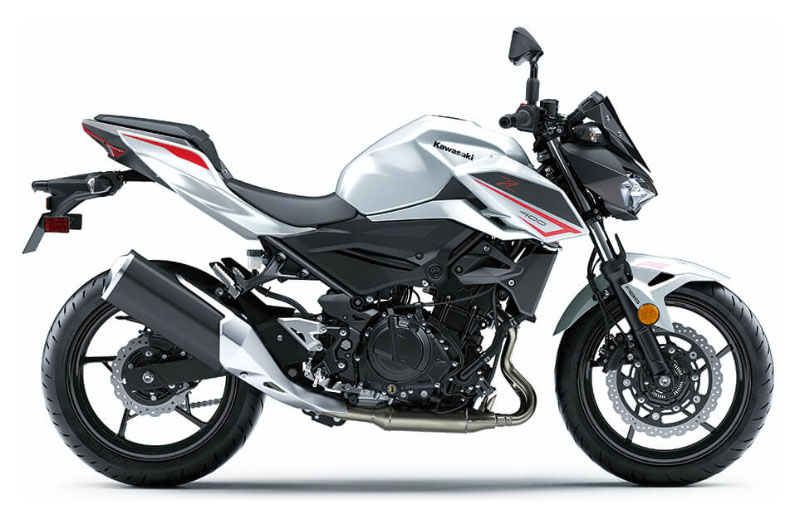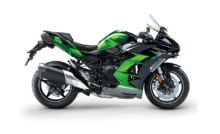2022 Kawasaki Z400 ABS Cleaning Owners Manual




2022 Kawasaki Z400 ABS Cleaning


Cleaning
General Precautions
Frequent and proper care of your vehicle will enhance its appearance, optimize overall performance, and extend its useful life. Covering your vehicle with a high-quality, breathable vehicle cover will help protect its finish from harmful UV rays, pollutants, and re- duce the amount of dust reaching its surfaces.
WARNING
The build-up of debris or flammable material in and around the vehicle chassis, engine, and exhaust can cause mechanical problems and increase the risk of fire. When operating the vehicle in conditions that allow debris or flammable material to collect in and around the vehicle, inspect the engine, electrical component and exhaust areas frequently. If debris or flammable materials have been collected, park the vehicle outside and stop the engine. Allow the engine to cool, then remove any collected debris. Do not park or store the vehicle in an enclosed space prior to inspecting for the build-up of debris or flammable materials.
- Be sure the engine and exhaust are cool before washing.
- When washing the vehicle, always use mild neutral detergent and water.
- Avoid applying all harsh chemicals, solvents, degreasers, oil re-mover, electrical contact cleaners, and household cleaning products such as ammonia-based window cleaners. They will damage or deteriorate painted parts, plastic parts, rubber parts and other synthetic parts including covers and headlight lens.
- Avoid applying degreaser to seals, brake pads, and tires.
- Gasoline, brake fluid, and coolant will damage the finish of painted and plastic surfaces: wash them off im- mediately.
- Avoid wire brushes, steel wool, and all other abrasive pads or brushes.
- Take care when washing the headlight lens and other plastic parts as they can easily be scratched.
NOTE
- After riding in an area where the roads are salted or near the ocean, immediately wash your vehicle with cold water. Do not use warm water as it accelerates the chemical reaction of the salt. After drying, apply a corrosion protection spray on all metal and chrome surfaces to prevent corrosion.
- Condensation may form on the inside of the headlight lens after riding in the rain, washing the vehicle or in humid weather. To remove the moisture, start the engine and turn on the headlight. Gradually the condensation on the inside of the lens will clear off.
Radiator
Clean off any obstructions with a stream of low-pressure water.
NOTICE
Using high-pressure water, as from a car wash facility, could damage the radiator fins and impair the radiator’s effectiveness. Do not obstruct or deflect airflow through the radiator by installing unauthorized accessories in front of the radiator or behind the cooling fan. Interference with the radiator airflow can lead to overheating and consequent engine damage.
Matte Paint Parts
- When washing the vehicle, always use a mild neutral detergent and water, or cleaners for matte paint.
- The matte paint effect may be lost when the paint is excessively rubbed.
- If any doubt, consult an authorized Kawasaki dealer.
Plastic Parts
After washing, use a soft cloth to gently dry plastic parts. When dry, treat the headlight lens and other non-painted plastic parts with an approved plastic cleaner/polisher product.
NOTICE
Plastic parts may deteriorate and break if they come in contact with chemical substances or household cleaning products such as gasoline, brake fluid, window cleaners, thread-locking agents, or other harsh chemicals. If a plastic part comes in contact with any harsh chemical substance, wash it off immediately with water and a mild neutral detergent, and then inspect for damage. Avoid using abra- Sive pads or brushes to clean plastic parts, as they will damage the part’s finish.
Chrome and Aluminum
Chrome and uncoated aluminum parts can be treated with a chrome/Coated aluminum minimum polish. should be washed with a mild neutral detergent and finished with spray polish. Aluminum wheels, both painted and unpainted can be cleaned with special non-acid-based wheel spray cleaners.
Leather, Vinyl, and Rubber
If your vehicle has leather accessories, special care must be taken. Use a leather cleaner/treatment to clean and care for leather accessories. Washing leather parts with detergent and water will damage them, shortening their life. Vinyl parts should be washed with the rest of the vehicle, then treated with a vinyl treatment. The sidewalls of tires and other rubber components should be treated with a rubber protectant to help prolong their useful life.
Where to be Careful
Avoid spraying water with any great force near the following places.
- Disc brake master cylinder and caliper.
- Under the rider’s seat, left side cover and fuel tank – if water gets into the fuse box or battery, it can ground out the spark. When this happens the vehicle will not operate properly and the affected parts must be wiped dry.
NOTICE
Coin-operated, high-pressure spray washers are not recommended. Water may be forced into bearings and other components causing eventual failure from rust and corrosion. Some soaps are highly alkaline and may leave a residue or cause spotting.
NOTE
An abrasive cleanser or high-pressure washer will damage the surface finish on the bodywork.
Washing Your Vehicle
- Before washing, precautions must be taken to keep water off the following parts.
- Muffler rear opening – cover with a plastic bag.
- Ignition switch – cover the keyhole with tape.
- Rinse your vehicle with cold water from a garden hose to remove any loose dirt.
- Mix a mild neutral detergent (de- signed for motorcycles or automobiles) and water in a bucket. Use a soft cloth or sponge to wash your vehicle.
- After washing, rinse your vehicle thoroughly with clean water to re- move any residue (residue from the detergent can damage parts ot your
vehicle). - Remove the plastic bag and tape.
- Use a soft cloth to dry your vehicle. As you dry, inspect your vehicle for chips and scratches. Do not let the water air dry as this can damage the painted surfaces.
- Carefully ride your vehicle at a slow speed and apply the brakes several times. This helps dry the brakes and restores them to normal operating performance.
Recent Posts
VW Jetta Engine Fuse Box Diagram
Access the comprehensive 2010-2018 VW Jetta Passenger Fuse Box Diagram to troubleshoot electrical issues effectively.…
VW Jetta Passenger Fuse Box Diagram
Explore the comprehensive VW Jetta Passenger Fuse Box Diagram to troubleshoot electrical issues effectively. Understand…
2023 Ford F-150 Lightning Fuse Box Diagram
Under Hood Fuse Box Location Remove the front luggage compartment cover. Under Hood Fuse Box…
2022 Kawasaki NINJA H2 SX SE Brake Lever Adjuster Owner’s Manual
2022 Kawasaki NINJA H2 SX SE Brake Lever Adjuster Owner's Manual NOTICE Only adjust the front…
2023 Land Rover Range Rover Evoque Exiting The Vehicle Owners Manual
2023 Land Rover Range Rover Evoque Exiting The Vehicle SINGLE LOCKING WARNING Before exiting the…
2023 Land Rover Range Rover Evoque Front Seats Owners Manual
2023 Land Rover Range Rover Evoque Front Seats FRONT SEAT SAFETY Make sure to read…
